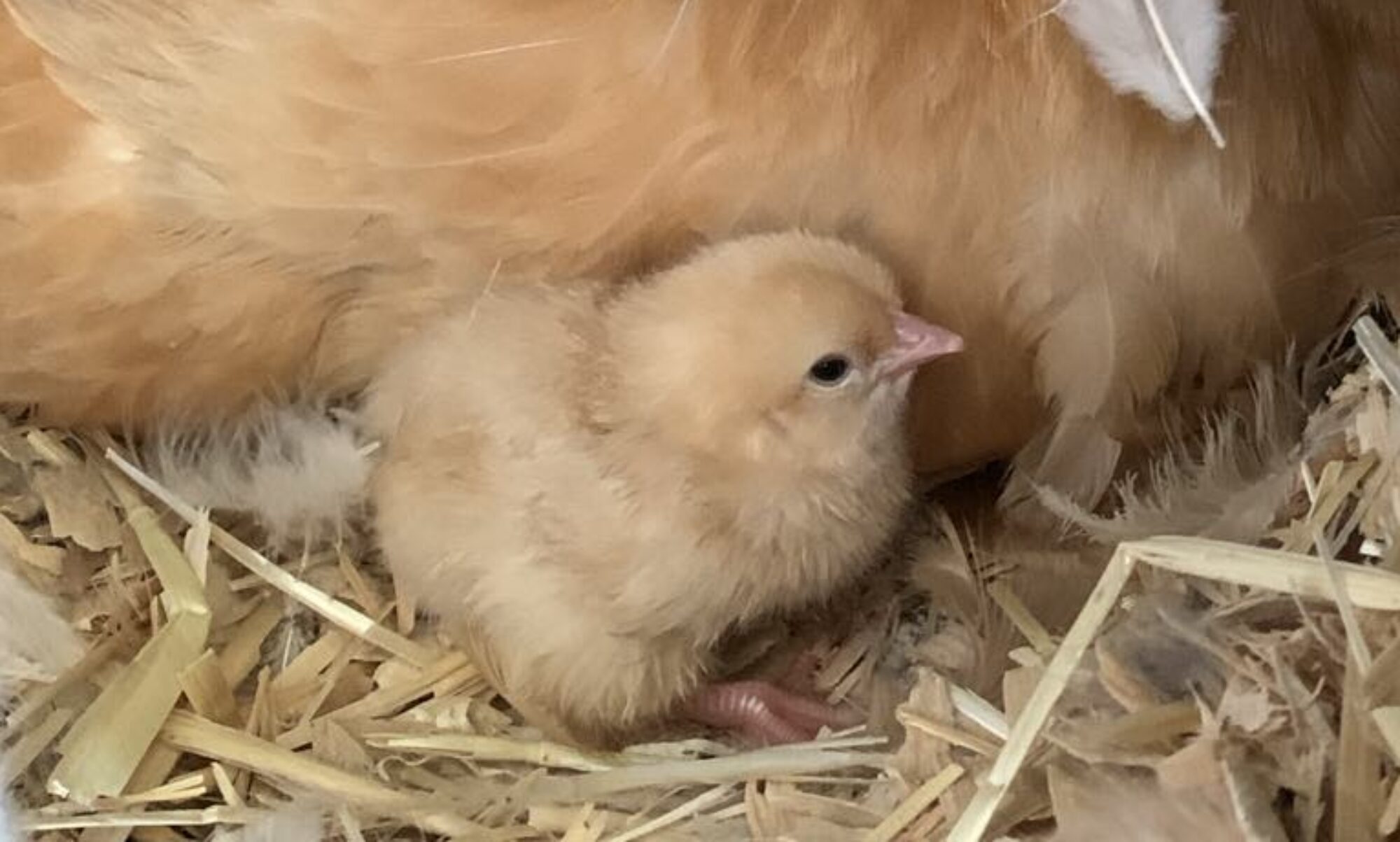I really enjoy spring. It signals not only the end of cold weather and snow, but also new life. It’s the time of year when we see animals come out of hibernation, bees and butterflies make their appearance once again and all sorts of baby farm animals take to the stage! There is not much that is cuter than a baby anything with their pure innocence and clumsy antics. Spring is also the time for planting and realizing new growth on our perennial plants. I always get excited when I see new shoots on my rose bushes. There are so many varieties, colors and smells of roses and they are a plant with many benefits, even for our chickens and other farm animals.

All parts of a rose bush are edible. Rose petals are a source of vitamins A, C, E, Niacin and antioxidants. Rose hip is the round portion of the rose flower just below the petals and contains the seeds of the rose plant. Some folks use rose hip in tea, jam and soup. It is a natural form of vitamin C, and you will often see Vitamin C with Rose Hip in the vitamin section of your local store. It looks like a berry on your rose bush after the flower has died away. All these nutrients are noted as being essential for growth, development and overall general health. It has been said that a mother hen will seek out rose petals for her baby chicks. I, for one, believe that our animals have a better handle on their nutritional needs than we do, and instinctively know what they need and what’s good for them. That’s why if we keep animals, we need to be informed and make sure that the foods we offer our animals are healthy for them. If all we offer them is junk food, they will become over weight, lethargic and more susceptible to illness and disease. As far as my research indicates, it is A-ok for farm animals to eat rose petals and rose hips, and some animals like goats and rabbits also like the leaves.

I feed fresh rose petals to my chickens regularly throughout the late spring and summer. I also try to dry as many as I can and save them to dole out through the winter months. I mix the dried rose petals with other dried flowers such as marigolds, nasturtiums, and a variety of herbs. I feed this herb/flower mixture to my birds a couple times a week along with their regular feed. It’s fun as well to add fragrant, fresh rose petals to my hens nesting boxes along with some fresh herbs to pretty them up and make them smell nice. They don’t last too long in the nesting boxes though, before somebody devours them…and that’s ok, even healthy! I must confess that I have not fed roses to my goats, but I have read where others have mentioned that a rose bush is not safe if a goat is in the vicinity. They will brave the thorns and enjoy the flowers as well as the leaves. I have fed branches of trimmed rose bushes to my rabbits and they do a pretty good job of stripping all the leaves and flowers from the stems.

Drying rose petals is an easy process. I generally pluck the petals off the rose flower, leaving the base still attached to the plant. I then spread a thin layer of the petals in the bottom of a cardboard box or aluminum pan. I stir them a couple of times a day and within a few days they are dry. After about 5-7 days, when the petals are totally dry, to avoid any spoiling, I store them in glass jars or zip lock bags, saving them for winter use. I have not harvested rose hip yet. I didn’t really know too much about them until I did some research. It seems that the best time to harvest rose hip is in the late fall or after the first frost. Apparently, the rose hip is quite tough and the frost breaks down the cell walls of the fruit making it easier to eat or use in food recipes. I will be looking for rose hip this fall and harvesting what I can. For those of you who have already harvested rose hip, I would love to hear from you!

I am always looking for inexpensive, healthy feeds and supplements for my farm animals and I love it when I learn that something that I am already growing is beneficial for my critters, and not going to waste. Have you fed roses to your herd?

Sources:
https://www.eatweeds.co.uk/rosehip-faq
http://www.aviculture-europe.nl/nummers/12E03A06.pdf
https://holistic-hen.blogspot.com/2016/09/chicken-food-for-free-part-5-rose.html#.XKrRuIplCfB

